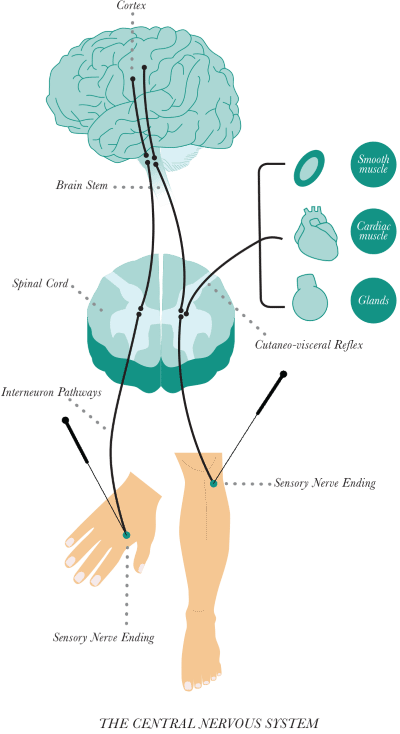Acupuncture to Ease Anxiety
In today’s fast-paced world, anxiety has become an all-too-common companion for many. Often, medical professionals often recommend medication and therapy, but an alternative approach to alleviating anxiety is gaining popularity – acupuncture. This ancient Chinese practice has shown promising results in helping individuals manage their anxiety naturally. In this blog, we will explore how acupuncture can be an effective treatment for anxiety and provide insights into its mechanisms and benefits.
Understanding Anxiety:
Anxiety is a complex mental health condition that can manifest in various ways, such as excessive worry, restlessness, and physical symptoms like increased heart rate, heart burn, insomnia and muscle tension. It affects people differently, making treatment approaches varied as well.
What do we know about the nervous system and anxiety? Our central nervous system consists of two parts. The sympathetic nervous system (SNS aka fight or flight stress response) and the opposing parasympathetic nervous system (PNS aka “the calming rest, digest and heal response”). It is well known that acupuncture affects both systems. Take a look at some current research, here.
Acupuncture and Anxiety:
When it comes to anxiety, acupuncture is a go to modality. No matter if we are treating digestive issues or a sore back people always comment on how calm and sleepy they become. This is because of acupuncture’s systemic effect on the nervous system and its ability to regulate it. Acupuncture focuses specifically to calm the fight or flight response that causes all those anxious symptoms while simultaneously increasing the calming effects of the PNS system. Acupuncture accomplishes this by:
- Stress Reduction:
- One of the primary ways acupuncture can help with anxiety is by reducing stress. During an acupuncture session, the body releases endorphins, natural painkillers that also promote a feel good sense of calm. It also inhibits the release the stress response neuro-chemicals from the brain (hypothalamus). Overall, this can significantly reduce the overall stress load on the body, providing relief from anxiety symptoms.
- Regulating the Nervous System:
- Acupuncture regulates the autonomic nervous system, which plays a vital role in the body’s “fight or flight” response. By promoting relaxation and reducing the body’s stress response, acupuncture can be an effective tool for managing anxiety long term.
- Balancing Energy Flow:
- In TCM, it is believed that anxiety can be a result of stagnant energy or imbalances in the body’s meridians and organ systems. Acupuncture aims to restore the flow of energy, allowing it to move freely and balance the body’s systems.

Benefits of Acupuncture for Anxiety:
- Non-Invasive: Acupuncture is a non-invasive therapy that carries minimal side effects.
- Personalized Treatment: Each session is tailored to the individual, addressing their unique anxiety symptoms.
- Holistic Approach: It considers the mind and body as interconnected, addressing both physical and emotional aspects of anxiety.
- Long-Lasting Effects: Many individuals report long-lasting relief from anxiety after a series of treatments.
Conclusion:
Acupuncture offers a holistic and natural approach to managing anxiety. While it may not be a standalone solution for everyone, it can be a valuable complement to traditional treatments or a primary therapy for those seeking alternatives. If you’re considering acupuncture for anxiety, consult with a qualified acupuncturist who can create a personalized treatment plan to address your specific needs. Remember, finding the right approach to managing anxiety is a journey, and acupuncture may be a valuable part of that path toward serenity and well-being.
Want to read more about acupuncture and the brain? Check out our blog Acupuncture, the Brain, and Neurological Conditions.
Questions? Email our acupuncturists at admin@triadahealthottawa.com or book online here
- Stefanie Manthey RAc
- Tracey Crocker RAc, RTCMP


